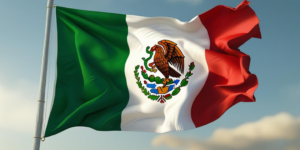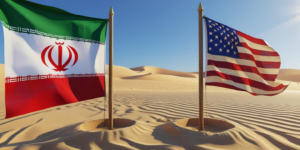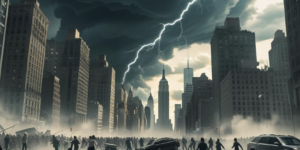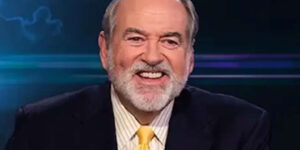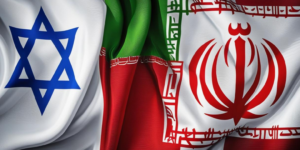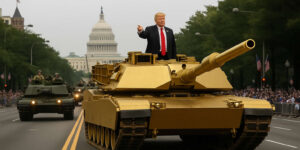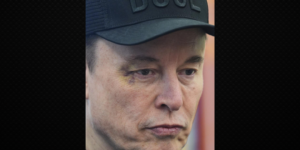Earth Day Has Pentecostal Roots
The man who coined the name Earth Day was a Pentecostal minister who thought the observance would help promote peace and unity.
According to the Assemblies of God (AG) Heritage magazine, 95-year-old John McConnell Jr., a longtime Pentecostal and peace
activist, first proposed the idea for Earth Day in 1969. His plan was to mark the day in late March at the start of spring to promote peace and justice as a prerequisite for ecological preservation.
But McConnell also was motivated by his faith. “We love God … [and therefore should] have an appreciation for His creation,” McConnell told AG Heritage, which is published by the Flower Pentecostal Heritage Center.
McConnell submitted his proposal for Earth Day to San Francisco city officials on Oct. 3, 1969, and the first governmental recognition of Earth Day was held March 21, 1970. The event gained support from Congress and the United Nations, which McConnell hoped Earth Day supporters would partner with in protecting the environment.
Yet the original Earth Day was quickly overshadowed. McConnell said Sen. Gaylord Nelson, D-Wis., wanted to move Earth Day to April
22, when he had scheduled a political protest called Environmental Teach-In Day. Nelson wanted to change the name of the teach-in to Earth Day, but McConnell would not agree to the idea.
“I said, ‘Absolutely not,” McConnell told AG Heritage. “Earth Day on nature’s event is too important for this global occasion. So the next thing I knew they stole my name Earth Day and they used it for April 22. I was urged to sue, but I didn’t. I didn’t believe in suing.
“San Francisco kicked it off and later on we had the United Nations. The Secretary General … thought Earth Day was a great idea, and the
United Nations [still] celebrates Earth Day on the March equinox.”
McConnell’s biographer, Robert Weir, said Nelson admitted that he got the idea for Earth Day from others, but he did not specify from
whom. In time, Nelson began to publicly claim full credit for founding Earth Day, which he wanted to use to protest pollution.
McConnell says the current Earth Day observance is too political, though he appreciates its goals of improving environmental
stewardship. He notes that April 22 is also the birthday of communist leader Vladimir Lenin, one of several reasons he continues to mark Earth Day in March, during the spring equinox.
McConnell comes from a strong Pentecostal lineage. His grandfather was at the Azusa Street revival in 1906 and his parents were
founding members of the AG in 1914. Although McConnell’s father was an ordained minister in the AG for a time, and McConnell himself became a preacher, both men were strongly independent thinkers.
The elder McConnell’s ministry credentials were not renewed in 1929 because AG leaders struggled to pin down his positions on doctrinal issues. And he took a strong pacifist position, which the AG endorsed until 1967, believing Christians were not supposed to kill even in war.
The younger McConnell adopted his father’s view. After being drafted into World War II, he asked for an exemption as a conscientious objector but was refused. While participating in target practice during basic training, he kept seeing an image of Jesus flash through his mind whenever he prepared to shoot a target. He refused to shoot and ended up in solitary confinement, eventually escaping the military base and fleeing the country with his wife.
McConnell began ministering off the coast of British Honduras and was eventually discovered by the FBI, which decided to leave him
and his wife alone because they were not engaged in subversive activities, according to AG Heritage.
McConnell later became a peace activist and organized the Star of Hope and Minute for Peace movements. The first encouraged the U.S. to launch a satellite as a symbol of peace, and the latter urged people to spend a minute in prayer each day. The first Minute for Peace was held Dec. 22, 1963, a month after President John F. Kennedy was assassinated, and short Minute for Peace radio messages have been read by heads of state and United Nations officials.
McConnell says all of his work, including his push for an Earth Day observance, sprang from his Christian faith. “If there had been no
Christian experience in my life there would be no Earth Day – or at least I would not have initiated it,” he told AG Heritage. “I’m a peacemaker, and part of the reason was my father, who was, without question, the greatest influence in my life.”
Though he says April 22 is not Earth Day, he sees the observance as an opportunity for Christians to be a witness. “While Earth Day is non-sectarian and non-political,” he said, “it provides a great opportunity for Christians to show the power of prayer, the validity of their charity and their practical concern for Earth’s life and people.”
 Bring Charisma magazine home with a subscription today!
Bring Charisma magazine home with a subscription today!
Charisma News Staff

















